History
History
Pay it forward.
Late in 1880, brothers Charles and Augustus Storrs donated land and money to start an agricultural school in Connecticut. More than 130 years later, the University of Connecticut has become one of the top public universities in the nation.
1881
Connecticut Gov. Hobart Bigelow signs legislation accepting Charles and Augustus Storrs' gift of a former orphanage, 170 acres of farmland, $6,000, and a few barns, and establishing Storrs Agricultural School. Classes begin on Sept. 28 with three faculty members and 13 males enrolled.
1893
The Connecticut General Assembly approves the institution's name change to Storrs Agricultural College and permits the admission of women, three years after Mansfield residents Nellie Wilson, Louise Rosebrooks, and Anna Snow became the first women to take classes at the school. Benjamin Koons' title is changed from Principal to President. The school becomes Connecticut's land-grant college.
1899
Storrs Agricultural College is renamed Connecticut Agricultural College.
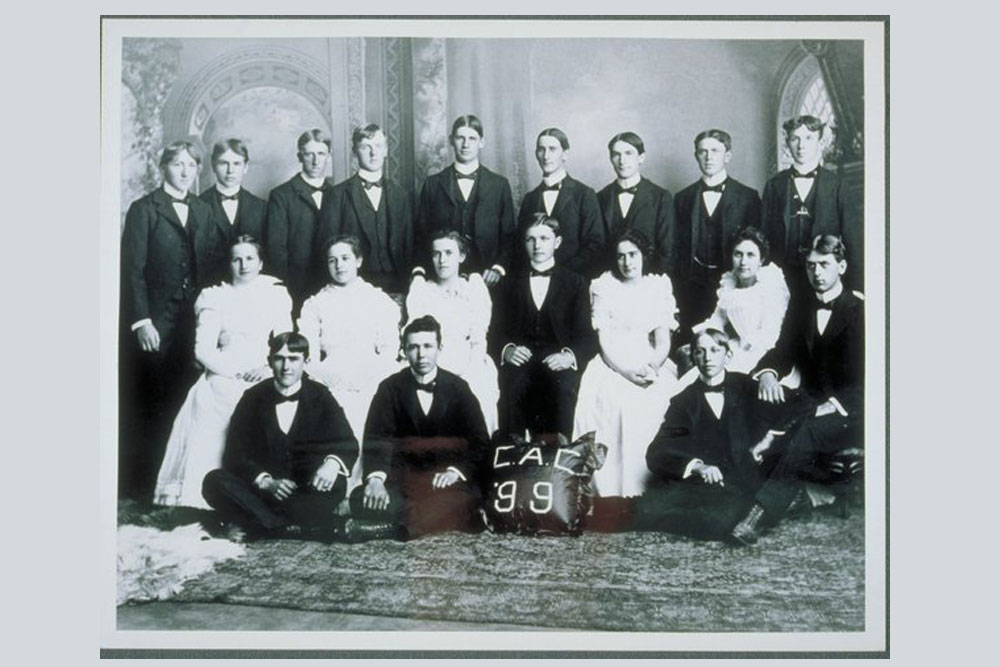
Class of 1899, Connecticut Agricultural College. Fourteen men and five women in posed picture.
1915
The College grants its first four-year Bachelor of Science degrees.
1920
Connecticut Agricultural College awards its first master's degree.
1933
The institution is renamed Connecticut State College. The school begins awarding Bachelor of Arts degrees.
1934
The husky dog mascot is chosen through a survey in the student newspaper, The Connecticut Campus. A student contest results in naming the mascot Jonathan, for Jonathan Trumbull, Connecticut's Revolutionary War-era governor.
1938
The College receives full accreditation by the Association of American Universities.
1939
Connecticut State College becomes the University of Connecticut.
1943
The University acquires the Hartford Colleges of Law and Insurance, effectively establishing the UConn School of Law. The Graduate School begins offering doctoral-level coursework.
1949
The University awards its first doctoral degrees: two in chemistry and one in genetics. University trustees prohibit organizations that discriminate against or exclude individuals based on race, religion, or national origin.
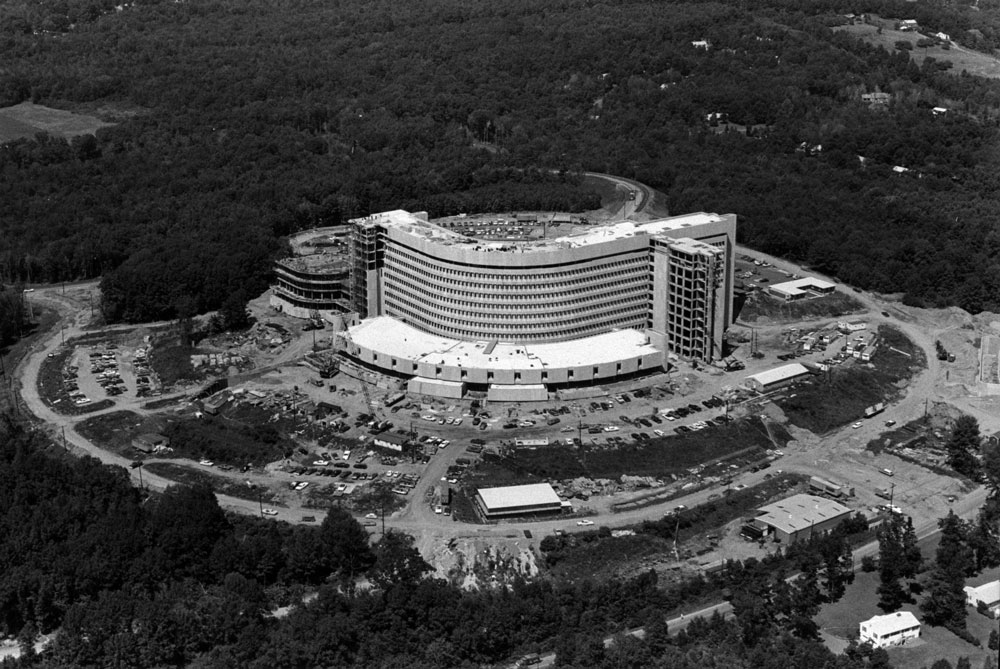
The building of John Dempsey Hospital in Farmington, Connecticut.
1955
Provost Albert Waugh starts UConn Early College Experience (formerly the High School Cooperative Program) as the first concurrent enrollment program in the county. UConn ECE is now one of the top programs nationally, a part of educational excellence in virtually every high school in Connecticut, and reaching over 13,000 high school students annually as they take introductory UConn courses at their high school
1964
The board of trustees approves the UConn Health Center, a 106-acre, seven-building complex for medicine and dentistry with inpatient and outpatient facilities, three years after the schools of Medicine and Dental Medicine are sanctioned by the state legislature.
1975
John Dempsey Hospital opens at the Health Center campus in Farmington, three years after the first medical and dental school students receive their degrees.
1981
UConn's women's field hockey team wins its first NCAA Championship. The team is the first UConn women's team sport to win an NCAA Championship. The University celebrates its centennial.
1985
UConn attains the prestigious designation of Research I institution from the Carnegie Foundation for the Advancement of Teaching.
1995
The state general assembly adopts UCONN 2000, a 10-year, $1 billion plan to rebuild, renew, and enhance the University. The women's basketball team wins the first of nine NCAA Division I championships under coach Geno Auriemma.
1999
The men's basketball team wins the first of five NCAA Division I championships, defeating Duke University 77-74. Alumnus Raymond Neag donates $21 million to the School of Education and $2 million to the UConn Health Center, the largest single donation in University history. Neag and his wife later donate $10 million to establish The Carole and Ray Neag Comprehensive Cancer Center.
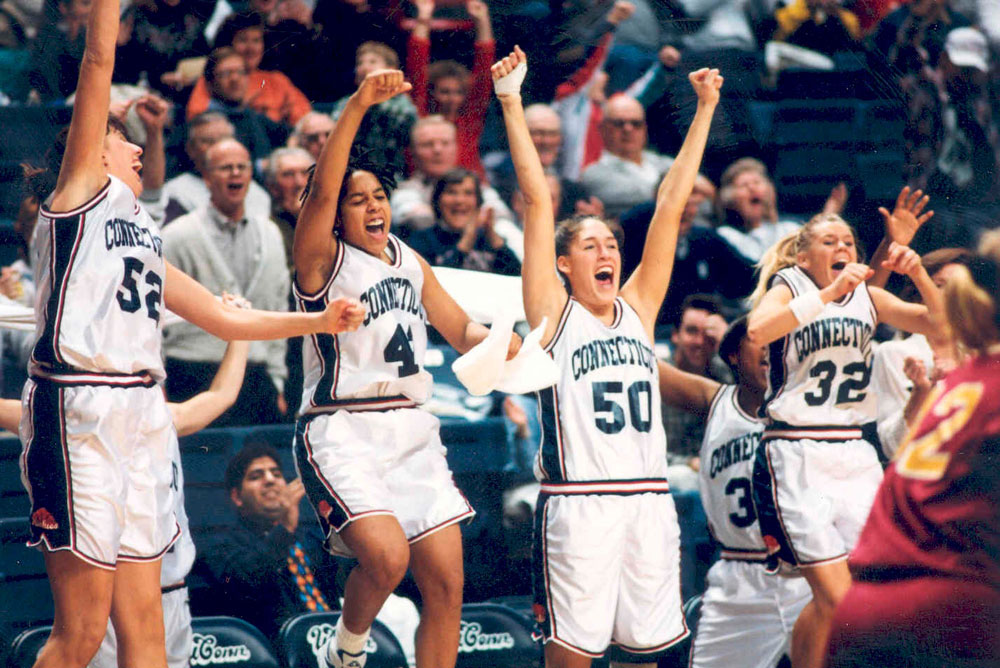
Players from the 1995 UConn women's basketball team cheer from the bench after winning their first national championship.
2002
Building on the success of UCONN 2000, the state legislature passes 21st Century UConn, a $1.3 billion improvement plan.
2003
Rentschler Field, the 40,000-seat home of UConn football in East Hartford, opens.
2011
U.S. News & World Report ranks UConn among the Top 20 public universities in the nation.
2012
Gov. Dannel P. Malloy announces an agreement to launch Jackson Laboratory's $1.1 billion genomic medicine lab on the Farmington UConn Health campus as part of the Bioscience Connecticut initiative.
2013
Gov. Dannel P. Malloy signs into law Next Generation Connecticut, committing $1.7 billion in funding over a decade to enhance UConn's infrastructure, hire additional faculty, and enroll more students, with an emphasis on STEM programs.
2014
Three UConn NCAA Division I Athletics teams win national championship titles in the 2013-2014 academic year: Field Hockey and Men's and Women's Basketball. UConn is the only school to have both basketball teams win Division I titles in the same year, and we've done it twice (the first Dual Championship was in 2004). UConn develops a new Master Plan document that will shape the physical development of the Storrs campus over the next 20 years, helping to guide capital investments and ensuring the infrastructure supports the University's mission.
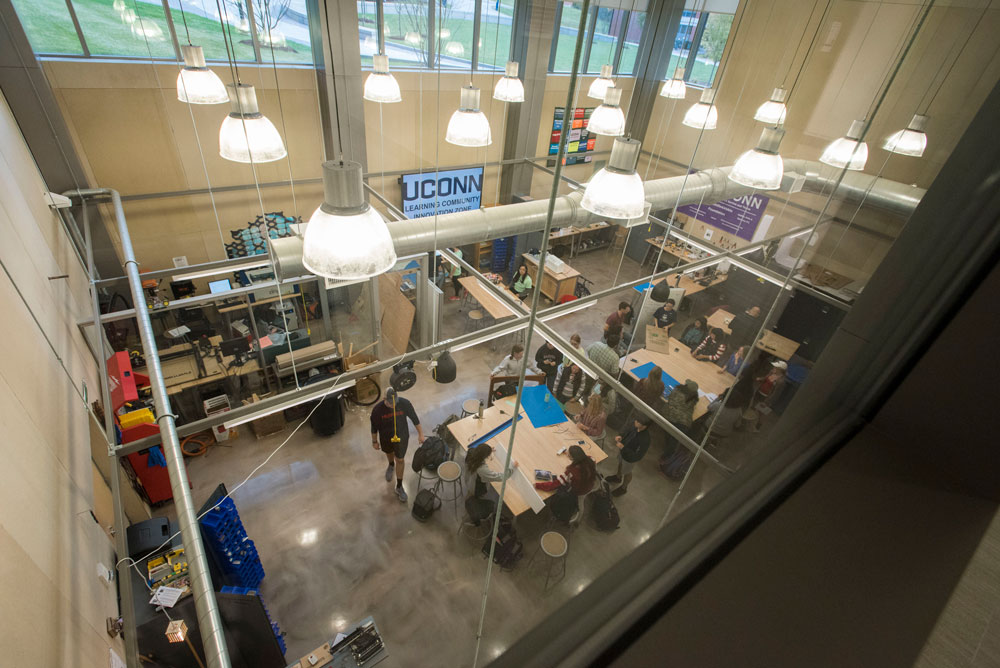
Students using the NextGen Maker Space in the Peter J. Werth Residence Tower.
2015
The University breaks ground on the Innovation Partnership Building at the UConn Tech Park, allowing UConn to forge new research partnerships with industry-leading companies.
2016
Peter J. Werth Residence Tower, UConn's first new student residential facility in 13 years, opens. The first project completed under the Next Generation Connecticut initiative, the eight-story building houses 727 students in eight Living/Learning Communities and includes innovations zones, makerspaces, and other resources for work and innovation.
2017
The women's basketball team records its 111th consecutive victory, shattering all records in Division I basketball. The first permanent student housing outside Storrs opens in Stamford.
The state-of-the-art UConn Hartford campus in the heart of Connecticut's capital city opens in the historic Hartford Times building.
2018
The largest freshman class in University history, more than 5,500 strong, arrives at UConn.
2019
Wanjiku (Wawa) Gatheru, a highly accomplished student leader whose academic achievements garnered national recognition, was selected as UConn's first Rhodes Scholar.
2023
The men's basketball team captures their fifth NCAA Division I national championship by defeating San Diego State University 76-59, becoming just the fifth team since the NCAA bracket expanded to win all six tournament games by double-digits on the way to a championship.
2024
The men’s basketball team becomes the first NCAA men’s basketball program in 17 years to win back-to-back national titles with a 75-60 win over Purdue.
A 10-year strategic plan adopted by the Board of Trustees in December 2023 takes effect. The plan is built on the pillars of promoting holistic student success, expanding the University’s research impact, and using its strengths to help Connecticut thrive.
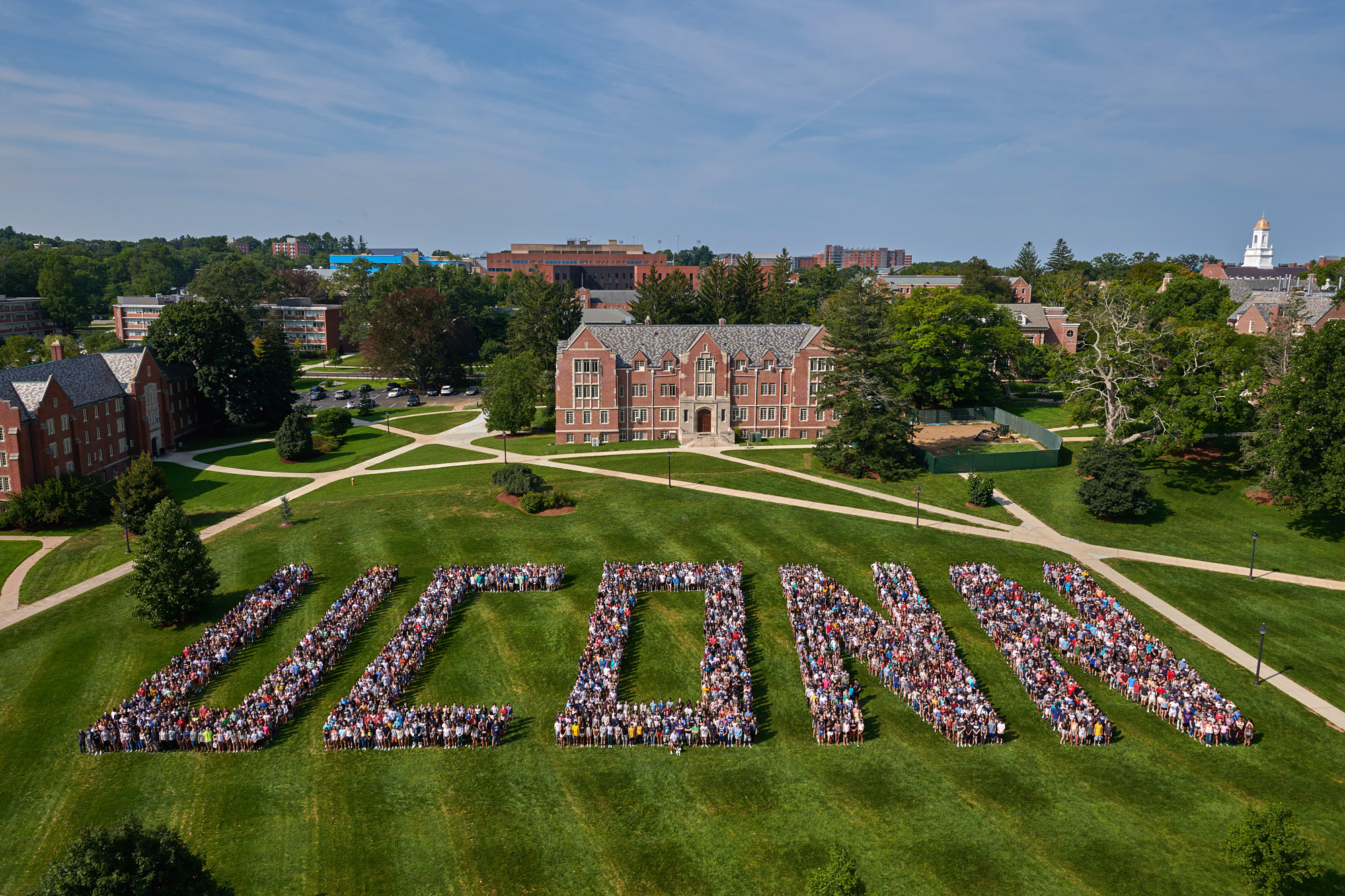
Class of 2022 class photo on the Great Lawn at UConn.